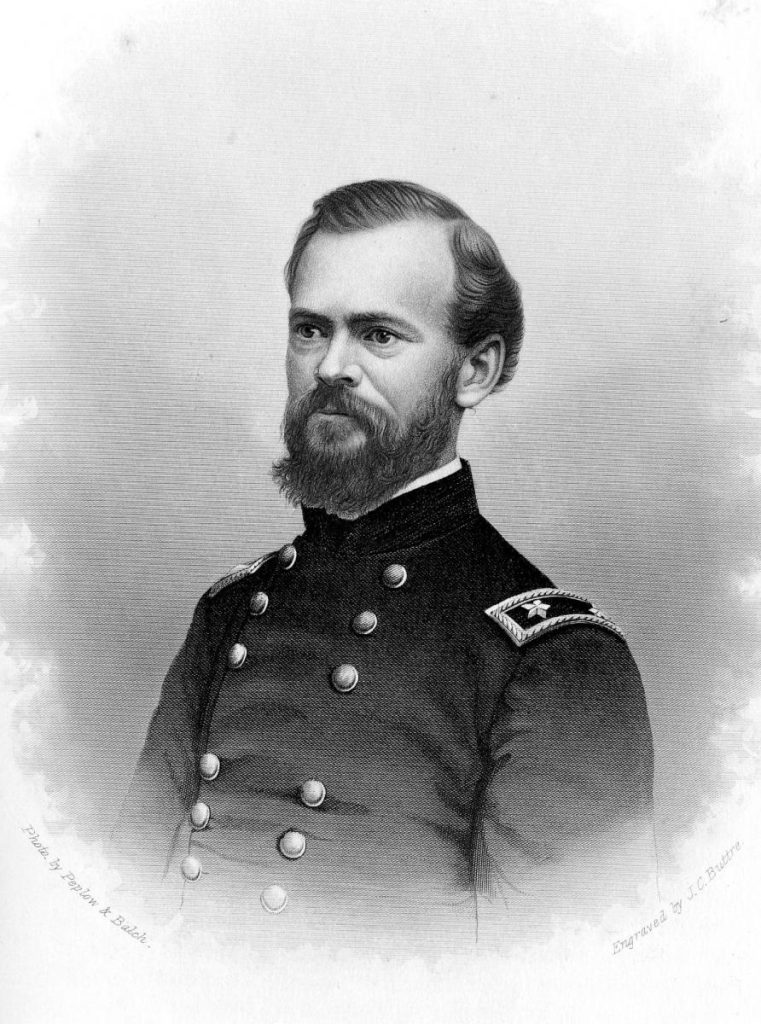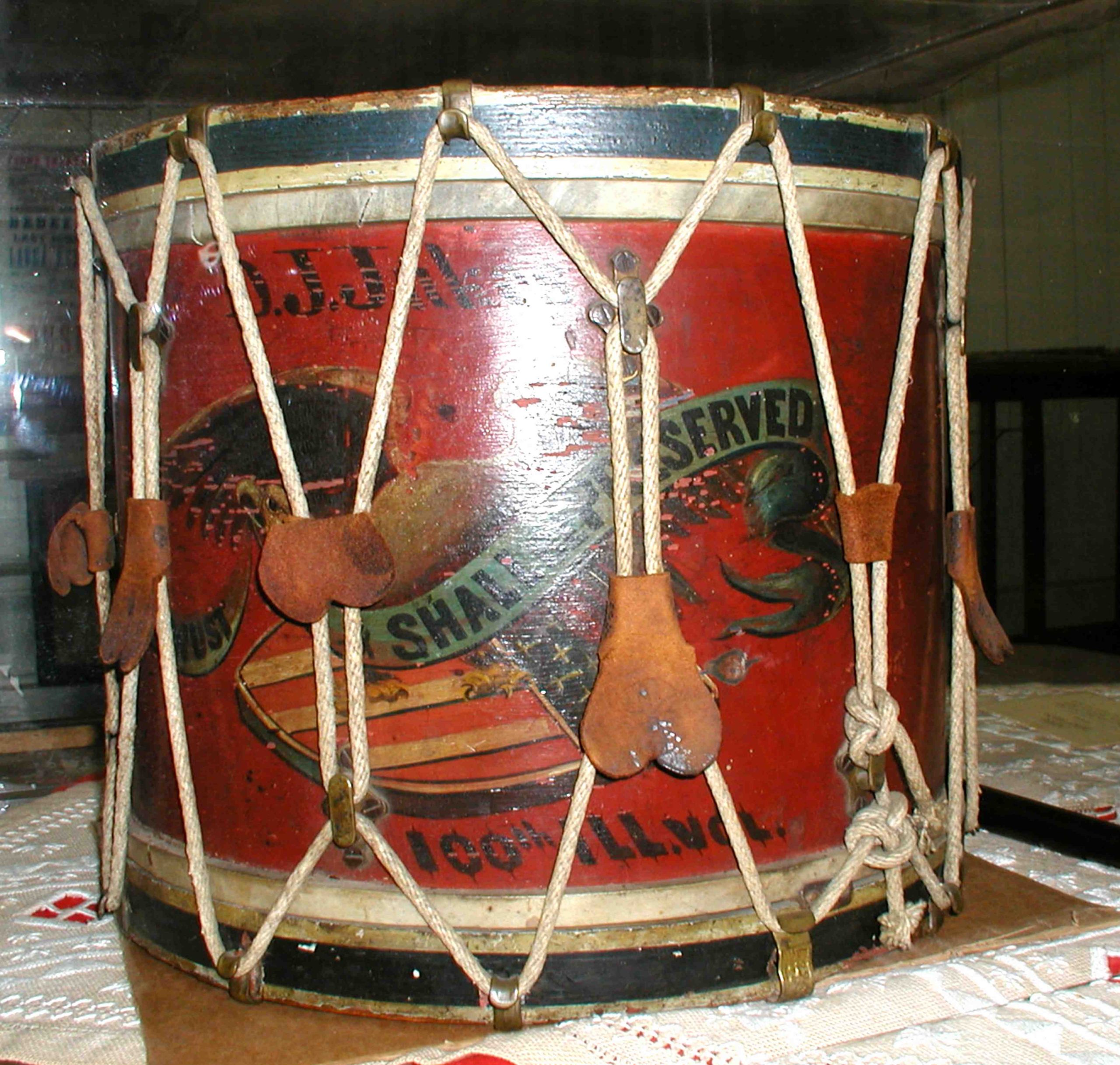Civil War: July 1864, Atlanta falls, but the war goes on

By Sandy Vasko
Last time, we left the 100th just after the assault on Kennesaw Mountain. We continue with their story:
The 1st of July saw them on the skirmish line exchanging pot shots with the rebs. In George Woodruff’s book, “Fifteen Years Ago, Will County in the Civil War,” a journal entry from this time reads: “Both skirmish lines began to get weary of the incessant exchange of shots, and had their little treaties of peace enabling them to get out of their cramped rifle pits, stretch themselves, exchange papers, and trade off coffee for tobacco. If either side had orders to fire, they gave fair notice – ‘Get into your holes Yanks,’ or, ‘Go home Johnny,’ was the word of warning, on hearing which the pickets would creep into their holes again and blaze away.”
On July 3rd, the 100th was on the move again, ever nearer their goal of Atlanta. On the 6th, the journal entry reads: “Went up a high hill and got a sight of the goal of our campaign. The smoke of the foundries at Atlanta was plainly visible. On the hill we saw the remains of a man hanging from a tree. The flesh was black and dried on the bones, and the feet had dropped off with the shoes. It was probably the remains of a spy. This place was known as Vining’s Station.
“So, judging that we were going but a short distance, perhaps to make a charge, no one took anything which was not positively needed. But we were marched all day through heat and dust, 18 miles to Rossville. There we forded the Chattahoochee, which was quite wide.
“The scene would have made a good picture for an illustrated paper. The men took off their shoes and pants, and making them into a bundle hung them upon their bayonets, and waded over. The river bottom was full of small slippery boulders, and frequently some unlucky wight would slip and go in all over, bundle, gun, and all, when a shout and a roar would go up from the rest of the men.
“On the 18th, we again started towards Atlanta, moving 3 or 4 miles and camping near Buckhead Cross Roads. There was considerable skirmishing all day. On the 19th, we advanced to the north bank of Peach Tree Creek. Here, the enemy held their ground very tenaciously, but on the morning of the 20th, some of our forces succeeded in getting a footing on the south side, and the battle of Peach Tree Creek was fought.
“On the 22nd, when the left wing of the army under the lamented McPherson was hotly engaged, the rebels kept up a continuous fire from a large fort upon our lines. Solid shot and shell flew thick and fast. One shot fell in Co. D, and killed Win. Dundore, of Plainfield, and carried away the entire calf of the leg of Nelson Platts, of Plainfield.
“At the same time, a shot struck in close proximity to ‘the hole’ in which Surgeon Woodruff and Charley Jukes, (musician and stretcher bearer from Wilmington)), were snugly ensconced, throwing the clay and gravel upon them in such force, that they supposed they were hit by the fragments of shell, and that their time had verily come. The doctor calls out to Jukes, ‘Charley, I’m killed now, I know I am,’ to which Jukes replies, ‘So am I, good-bye Doc.!’ But after a few moments, not dying so fast as they expected, they jumped up and found that they had life enough left to fix up poor Platts, and take him from the field to the hospital, where his leg was amputated, which resulted in his death at Chattanooga, in September following.”
And so, for the men of Will County in the field the war went on, day after day. Back at home all they could do was pray, but even that had its consequences for some. Woodruff relates the story: “The most terrific storm of this kind occurred on Sunday, the 31st day of July, 1864. During the morning service at the German Catholic Church in the north part of the city (Joliet), the steeple was struck by a thunder-bolt, which startled the entire city.
“The fluid passed down to the gallery immediately under the steeple, where it separated and passed down to the earth in two currents. For a moment the whole congregation was paralyzed. When consciousness returned, the scene was beyond description, and without a parallel in Will County.
“The smoke or vapor of some sort which followed the report, gave the impression that the church was on fire, and an insane rush was made for the doors and windows, which were broken out and torn from their hinges, and but for the presence of mind of the Pastor, a still more frightful loss of life must have resulted.
“When the terror of the crowd had been calmed, and the fact ascertained that the church was not on fire, the killed and wounded were looked after. They were carried out into the open air, and those who were not fatally injured recovered consciousness in the falling rain.”

